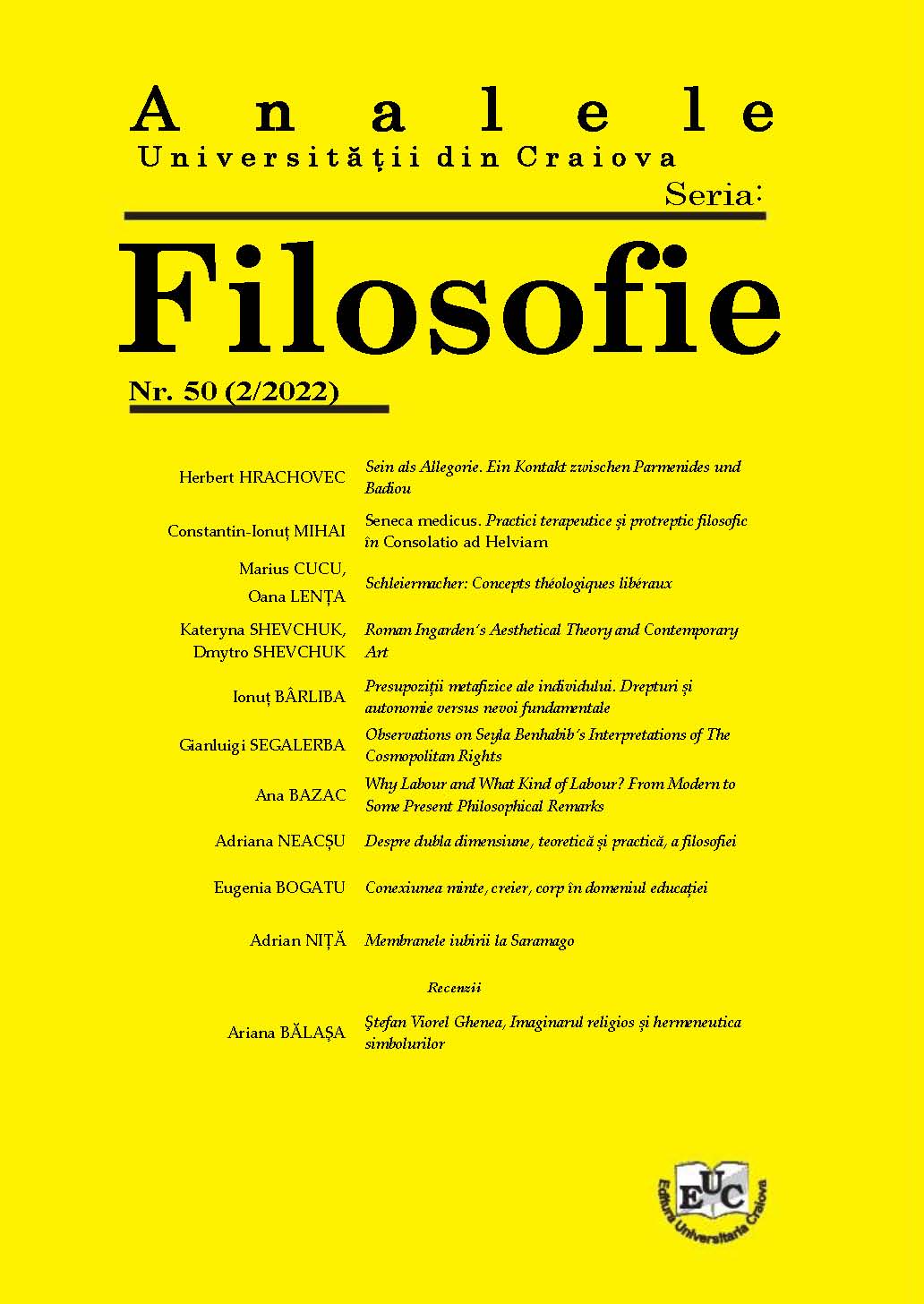PRESUPOZIȚII METAFIZICE ALE INDIVIDULUI. DREPTURI ȘI AUTONOMIE VERSUS NEVOI FUNDAMENTALE
DOI:
https://doi.org/10.52846/afucv.vi50.34Keywords:
individual, liberalism, John Rawls, self, Sřren KierkegaardAbstract
The present paper proposes a brief comparative analysis between two distinct metaphysical approaches about the person, with consequences in the area of morality. On the one hand, there is a Cartesian, Kantian perception, adopted and adapted by John Rawls, who essentially understands the individual as a rational and autonomous entity. On the other hand, in a Kierkegaardian understanding, people are, in a primary sense, natural beings, i.e. dependent, relational and guided by natural (not instrumental, determined) needs. This second perspective can be understood as an "alternative metaphysics of the person/self", which would suggest a different foundation for morality. In other words, our moral thinking would have its origins in certain natural needs, in love and affection (which also come with certain duties, attributes and responsibilities), rather than in rights and in autonomy.


